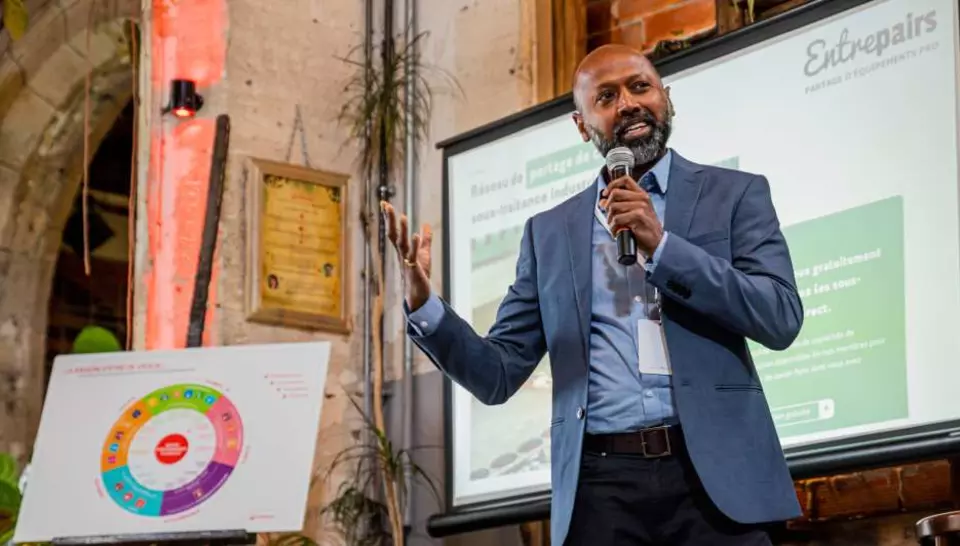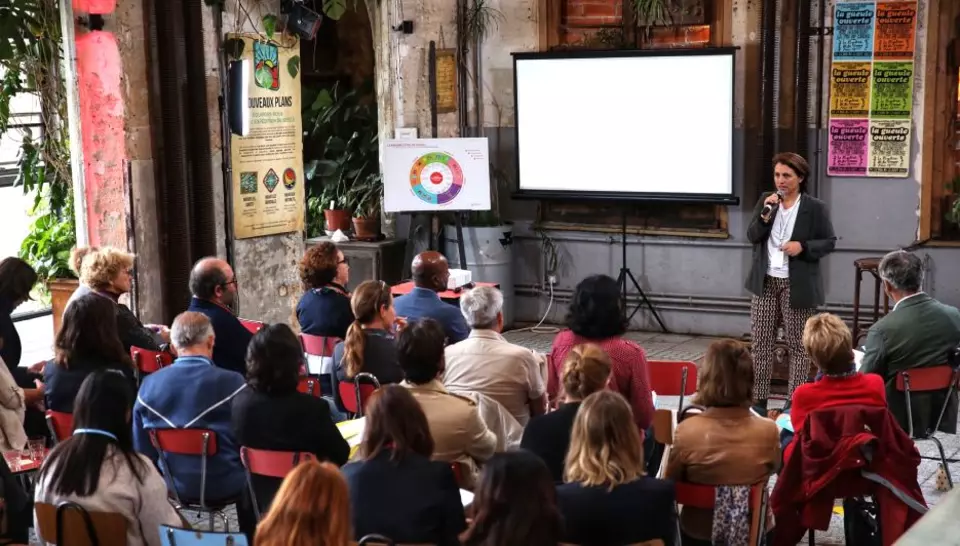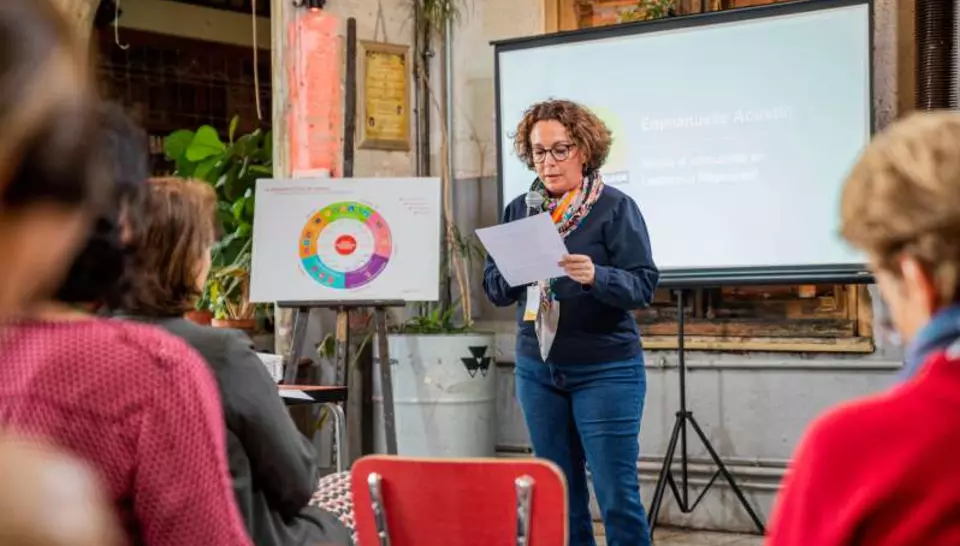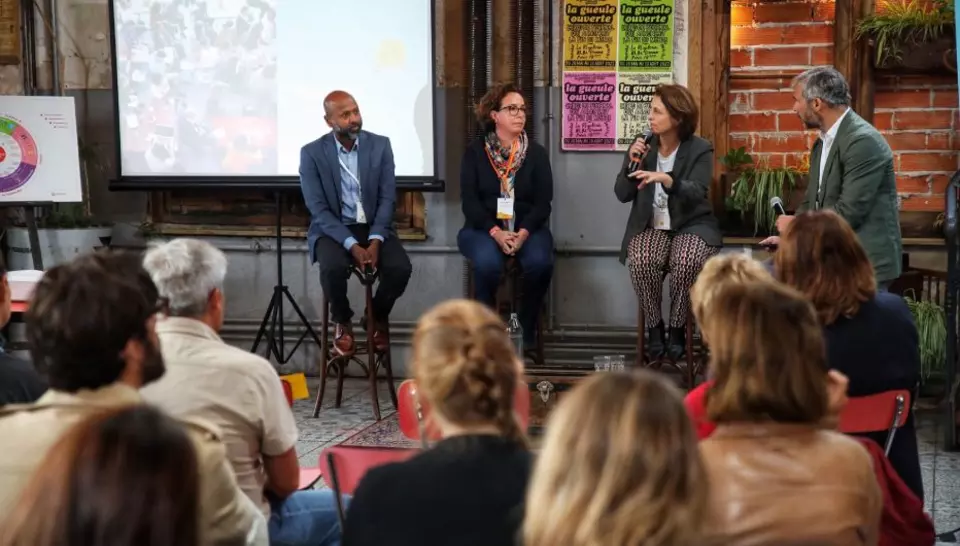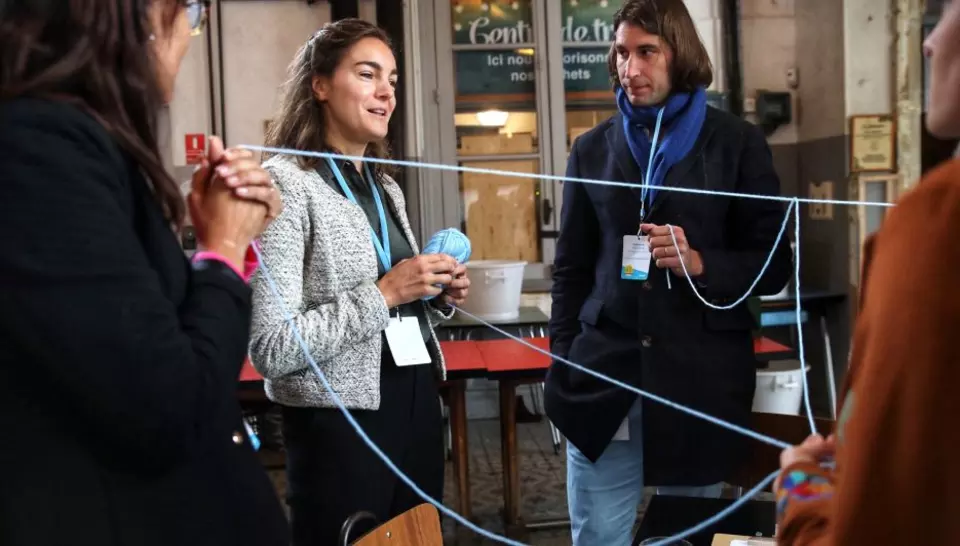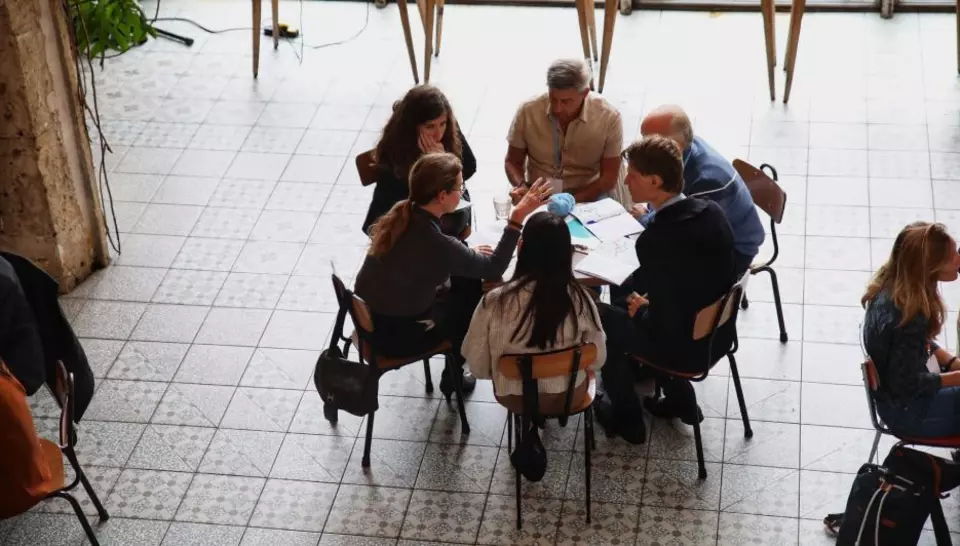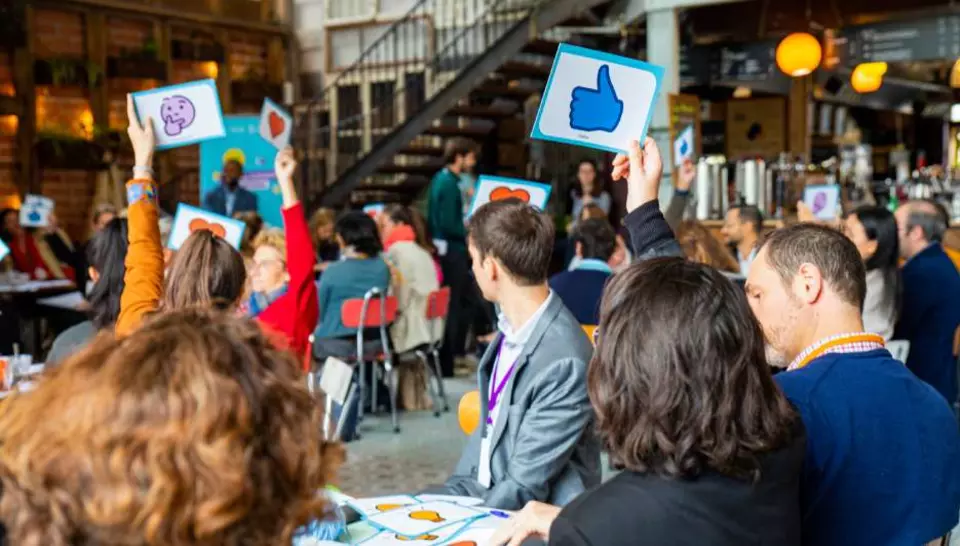On Tuesday, 27 September 2022, the "+1, the ecology turned into actions" collective, which involves 50 Veolia stakeholders, met at the REcyclerie in Paris for a new work session devoted to the links between innovation and cooperation, with a view to fostering ecological transformation. The question raised was: how can a more open, diverse cooperation with its stakeholders accelerate and amplify innovation? A look back on a morning of discussions.
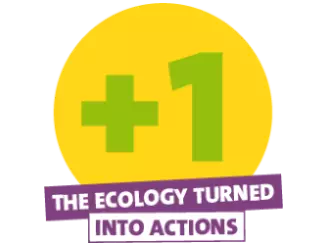
In 2022, the "+1" collective has launched a new series of meetings dedicated to the challenges of opening up the governance of companies to their stakeholders. After examining the links between better governance and territorial resilience in June, in September the collective looked at the links between better governance and... innovation.
Innovation and cooperation: two sides of the same coin?
Given the scale of the environmental and societal challenges, the ability to innovate will constitute the cornerstone of ecological transformation. So, how can we accelerate innovation? What if part of the answer lies in a more open and diverse cooperation between actors?
At a time when innovation is multifaceted (technological and societal, incremental and disruptive, organisational and commercial, etc.), it is becoming more necessary than ever to join forces with others to innovate.
How can we find new forms of cooperation, based for example on collective intelligence, to foster innovation? How can new modes of governance contribute to identifying, staking out, and accelerating innovations whose “value proposition” responds to current challenges? The collective explored these questions during this half-day of discussions, organised around a keynote and a collective intelligence workshop.
An inspirational keynote by 3 experts
In order to inspire the members of "+1" ahead of their workshop, three speakers took the floor to discuss the question of the modes of cooperation between stakeholders in the service of innovation, using different angles:
-
Navi Radjou, an essayist and frugal innovation theorist, for example, went back to the subject of the virtues of "inter-company sharing", a concept developed in a memorandum with the Terra Nova Foundation, and of the frugal economy to produce better, consume better and live better, while remaining conservative in terms of resources;
-
Catherine Ricou, Veolia's Head of Innovation, demonstrated the importance of changing our business models to ensure that they are ever more useful to the community, for example through the operation of "innovation hubs", which bring together major groups and start-ups to strengthen and accelerate the deployment of innovative and impactful solutions on a large scale,
- Emmanuelle Aoustin, a consultant specialising in Regenerative leadership, stressed the need to put people back at the heart of discussions through several leadership transformations, with the benefit of more innovation.
Collective intelligence workshops to develop concrete ideas
Following the talks, the members of "+1" participated in a collective intelligence workshop, first within their own stakeholder category (Employees, Customers, Shareholders, Society, Planet), then between stakeholders from different categories, in order to experience the benefits of collaborating in a decompartmentalised way. Three key steps are at the heart of this workshop, to create a relationship of trust and learn to work together: active listening, prioritisation of actions, training.



